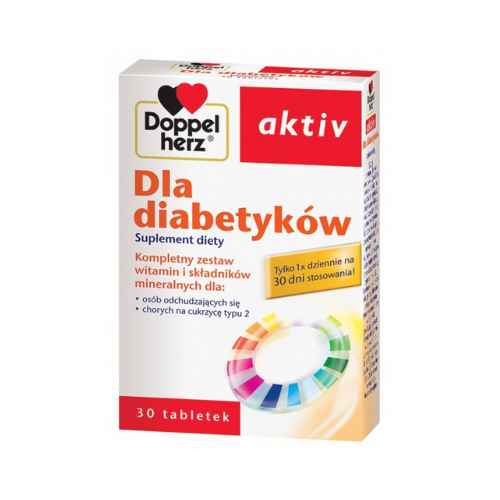It has been found that in the case of diabetes or weight loss, the body’s reserves of vitamins and minerals are often depleted. The need to maintain a strict diet may additionally contribute to an insufficient supply of nutrients. As some vitamins and minerals have a significant impact on carbohydrate metabolism and energy metabolism, it is recommended to supplement the diet with these nutrients.
Chromium affects the activity of insulin and thus the maintenance of normal blood glucose levels. Zinc plays an important role in the metabolism of carbohydrates, and vitamin B6 in the metabolism of glycogen (including glucose uptake by cells). Vitamins B6, B12 and folic acid have a positive effect on the level of homocysteine in the blood, which is important in the case of diabetes.
In people with diabetes, increased formation of free radicals (the so-called oxidative stress) is observed. Zinc, selenium, vitamins C and E protect cells against the increased oxidative stress typical of diabetes. Vitamins B1, B2, B3 (niacin), B5, B6, B12, biotin and vit. C and magnesium are involved in the proper use of energy by the body.




